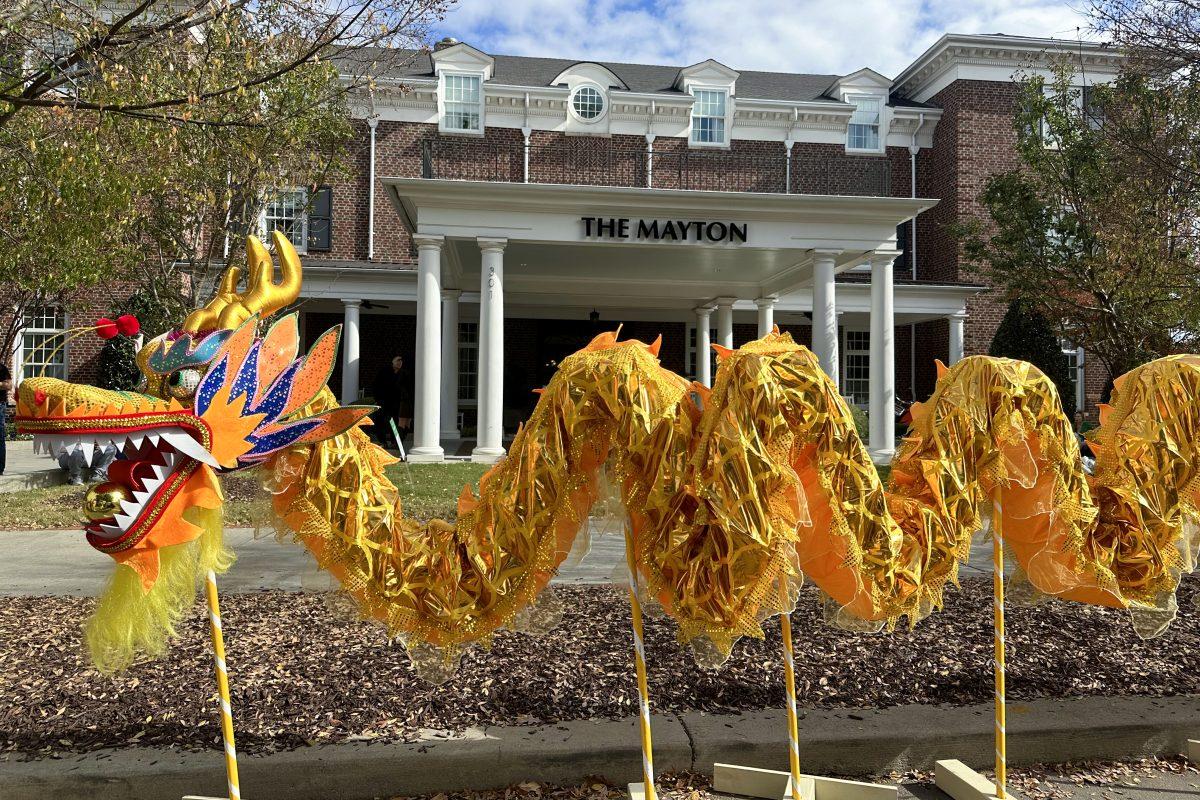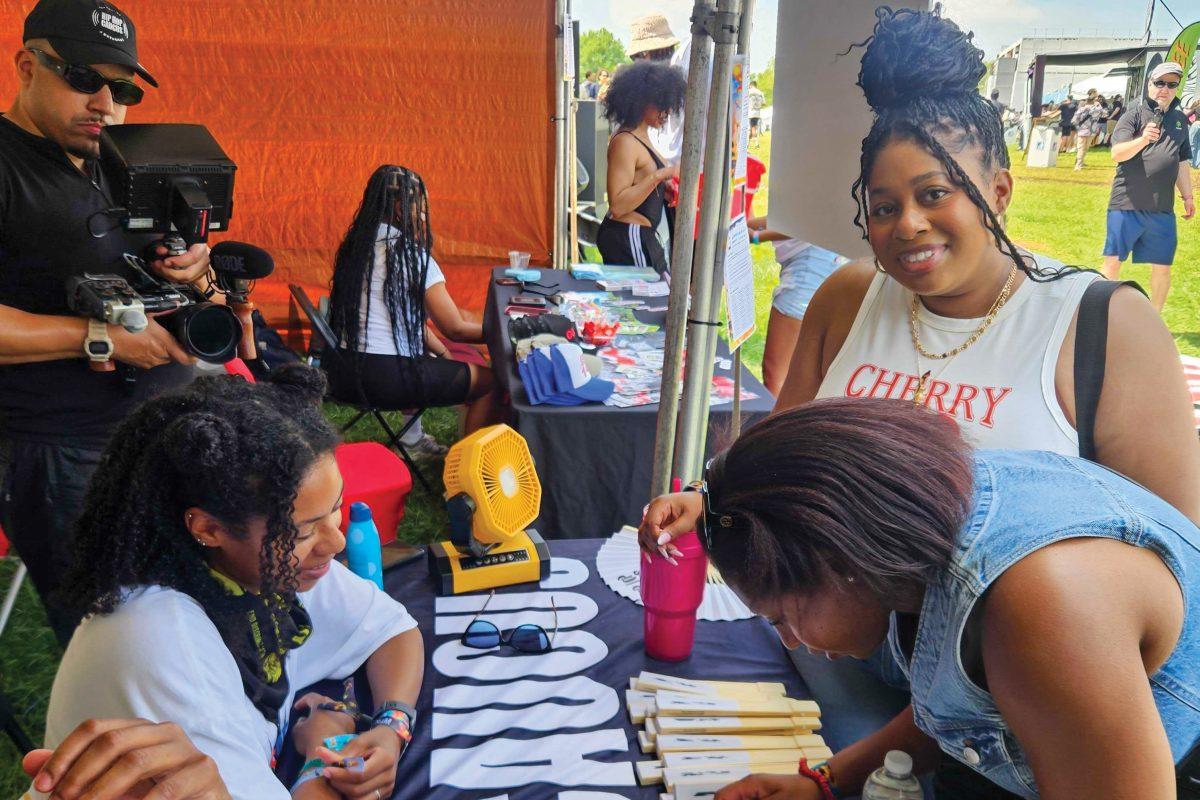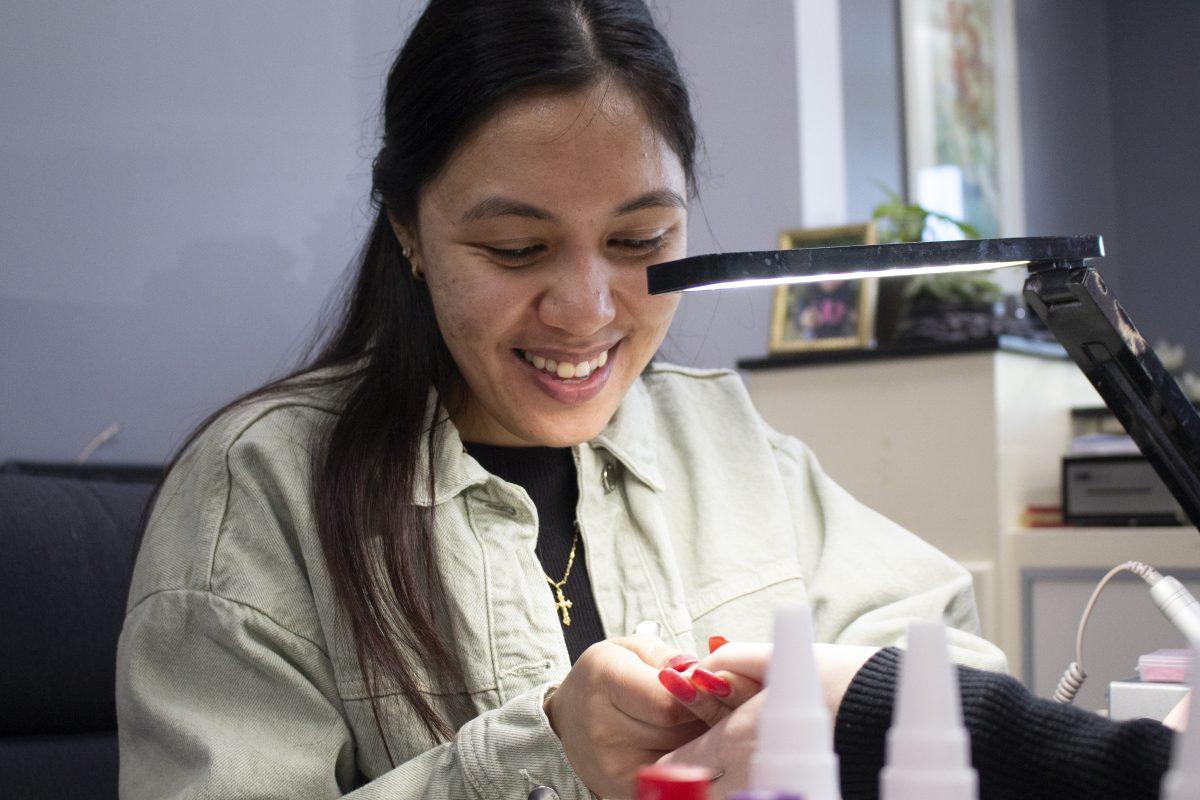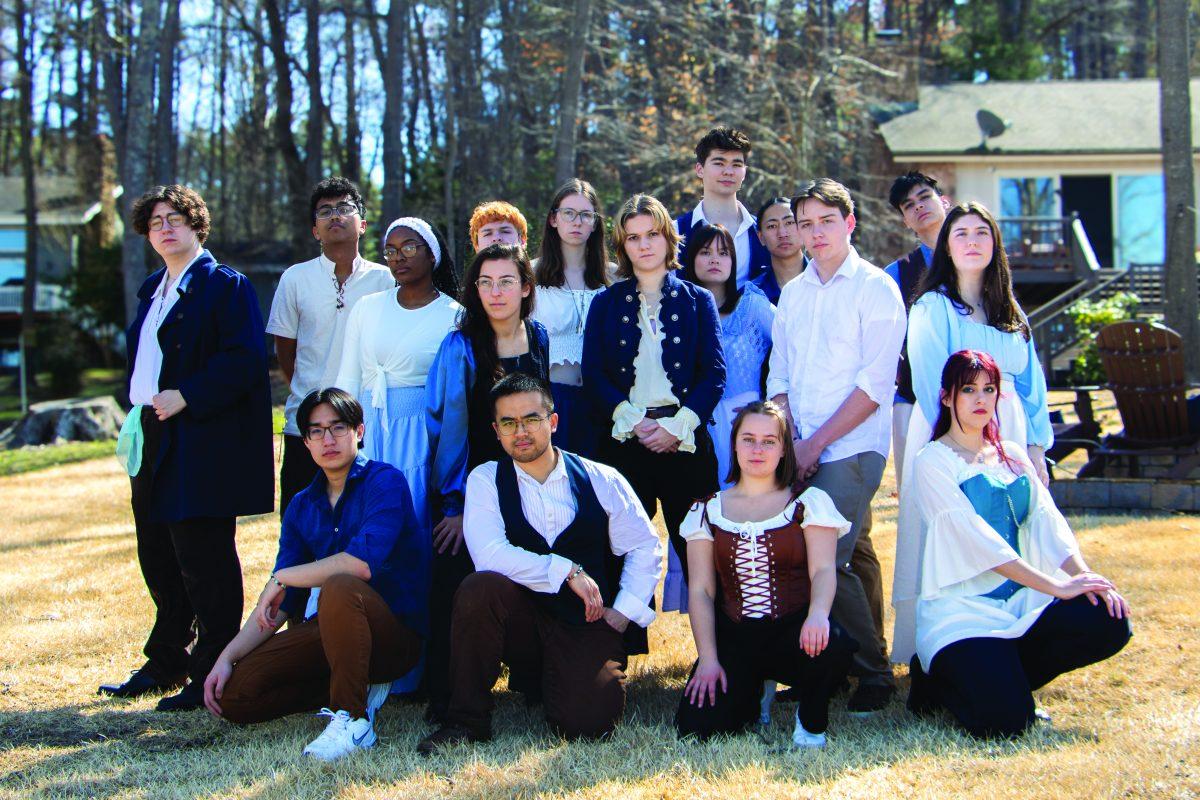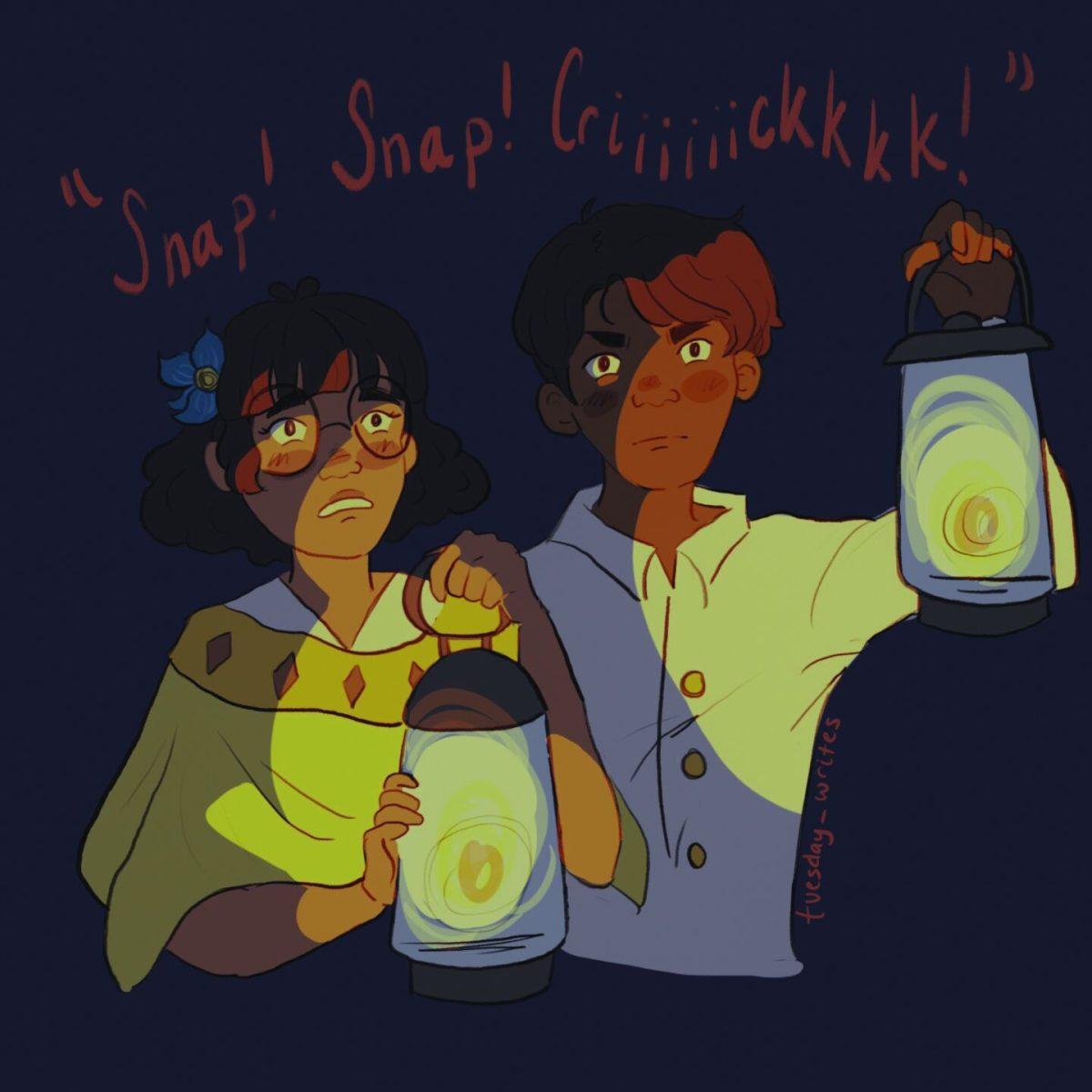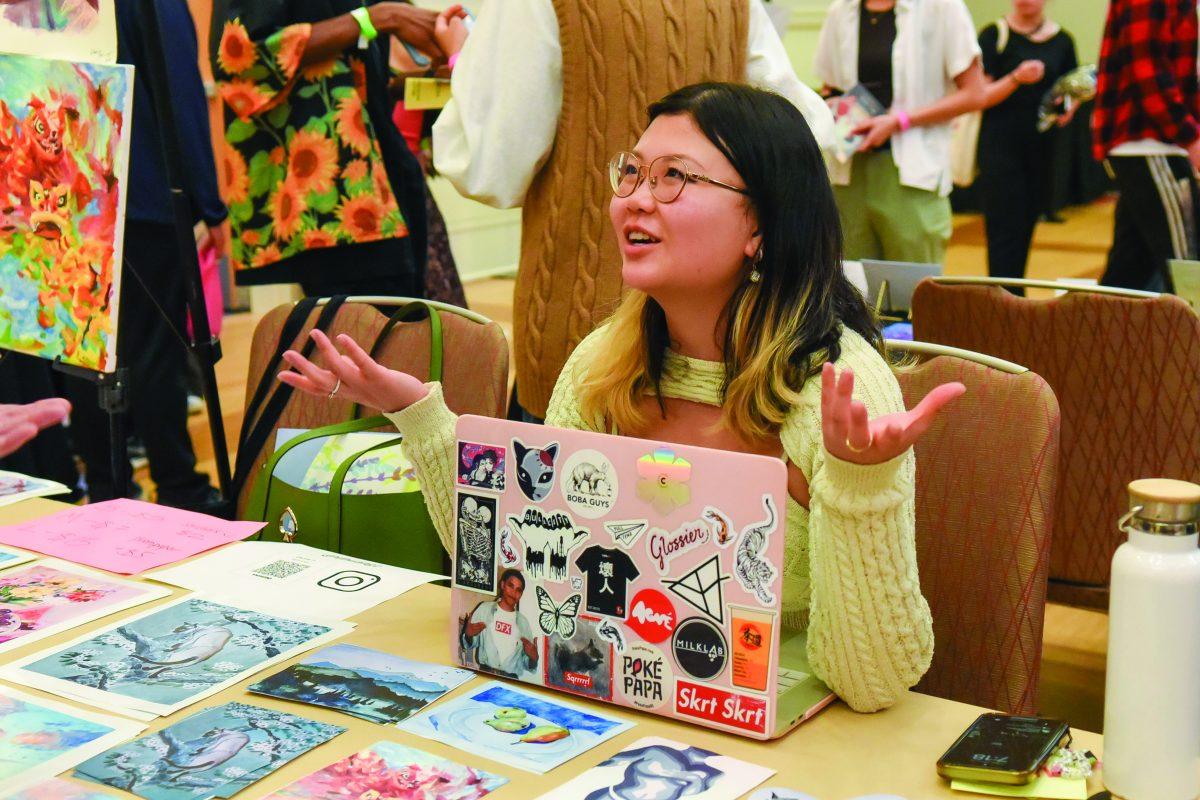From 11 a.m to 5 p.m on Nov. 2, Downtown Cary Park was full of people for the Chinese Food and Culture Festival.
Near the southeast side of the park, by the fountain and Market 317 building, were several tents tabiling. Amongst them were Raleigh Academy of Chinese Language, UCA Waves, Triangle Chinese Dance Club, Cary Chinese School, Dr. Addison Aesthetics, Heyi Tang Acupuncture and Nachhun Ding Yi Education, alongside many others.
Dengwei, or David Huo, is a Chinese folk singer, engineer and General Electric quality control manager. In 1994, he immigrated to the U.S from from Dalian, a costal peninsula in northeast of China, surrounded by sea from three separate directions to earn his PhD in Chemistry at Duquesne University in Pittsburgh, P.A. Now, Huo lives in Wilmington, N.C and is a member of the RTP Singing Club, who invited him to the festival.
Following a duet, he performed the Three Gorges Love Song, about three well-known gorges along the Yangtze River in the People’s Republic of China, on the Downtown Cary Park stage as part of the 4th Annual Taste Of China.
“The Three Gorges is very beautiful. If you talk about the Three Gorges, I think any and all Chinese know that. It is part of what we call the 長江, Cháng Jiāng, the longest river in China, where people are originally from,” Huo said. “That’s the song I sang; the Chinese vocal style. When I was a little kid I would always sing by myself. Something in my spirit, I want to share that.”
In Wilmington, Huo said there is not a large Chinese community. According to the U.S. Census Bureau American Community Survey, from 2018 to 2022, 38,296 people were identified as speakers of Cantonese or Mandarin in North Carolina. 8.7 million people aged 5 and older speak only English at home.
“I want to share the culture with people, particularly in the U.S. I want to know people from other countries or nations. We can share and learn at the same time,” Huo said. “I really enjoy this. Not only the performance, but the food, of course. This is a very good activity organized by Chinese community to promote Chinese culture and make sure people understand each other.”
The festival was hosted by the Chinese-American Friendship Association of North Carolina, a non-profit and non-political organization founded in Oct. 1996, whose objectives include fostering friendship amongst Chinese and Chinese Americans, helping members succeed in American society, protecting the rights of its members and promoting SINO-American culture, science and technology exchange. Lily Liu, a CAFA board member, stands beside their table.
“About 50 people volunteer. We ask the people to come here at 7 a.m. to set up their tents,” Liu said. “We organize the performances, have the Chinese Gala and many national dances. We also invite many American vendors to come here. We want to connect more people to Chinese culture.”
At another table was Stop the Bleed at UNC-Chapel Hill, a campus-wide joint project among students of the UNC School of Medicine, Gillings School of Public Health, ACERIP and the UNC Trauma Department, to establish a training program on campus that will provide civilians capabilities to prevent unnecessary death from uncontrolled bleeding. There, running the table were undergraduate students and EMTs Michael Lu, Ethan McLaughlin and Anthony Chen, promoting Equitable Cardiac Health Outcomes.
“We’re really about meeting people where they are at. In standard CPR education, they use songs like ‘Staying Alive.’ We’ve experimented with using different culturally significant songs,” Lu said. “For example, there’s a song in a movie, of one of the four classic Chinese novels any Chinese person would know. In English it’s called ‘Journey to the West,’ and in Mandarin, ‘西游记, Xīyóu Jì.’ I’ve been using that and I’ve been able to see the difference it truly makes.”
A variety of food was being served, ranging from pork baked buns from Wheat in Chapel Hill, Takoyaki, a dish comprised of golden octopus filled balls, atop savory sauce, matcha mayo and scallion from Shinmai Shokudo, Korean style hot dogs from Golden K Dog and turkey legs, funnel cakes and garbage fries from a fair-styled vendor. Empty boxes of clear frying oil piled behind the vendors as a man used a hair dryer to direct smoke away from grilled skewers. Liu said, their favorite dishes are dumplings and hot pot.
Outside the Mayton building, a golden dragon with green eyes, blue eyebrows and in its mouth a golden ball, was held up on yellow and white-striped poles. In one of the park’s grassy areas, children played with kite streamers resembling dragons. Attending the festival for the past hour or so was a friend group of NC State University graduates, amongst whom are Vastral Hawk, Michael Sanderson and Jasmine Royaga. Hawk and Sanderson met in class while attending the university.
“I had some unique food that I’ve never tried before,” Hawk said. “I tried like three or four different vendors; a very unique jelly, milk tea that was super good, Okonomiyaki and we had skewers as well.”
Sanderson spoke as well, as the festival began closing. People began to leave as the sun set while others stayed to sit in the park.
“I think events like this are really good because you bring people from our local communities together. It does a good job of helping bring inclusion. Asia has a huge diaspora of cultures, so people get to come out and showcase. They get to work on their commerce, bring economic opportunity to the community and share what they sell and celebrate,” Sanderson said.
The festival offered a place for people of many different cultures to show up and show appreciation for those of different backgrounds. Sanderson, an ancestor of the Lumbee, felt an appreciation for the event and what they were doing.
“I’m Lumbee, so I know what it’s like to be included or not included. I would say, for somebody whose culture is often not included or not captured in studies or research, I think it’s really cool when people can come out and do their own thing and make us feel welcome. ”


